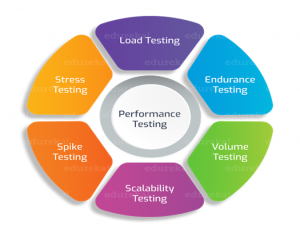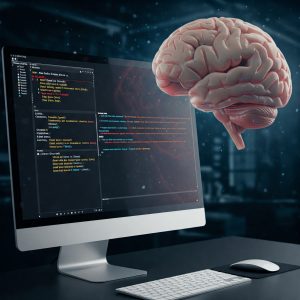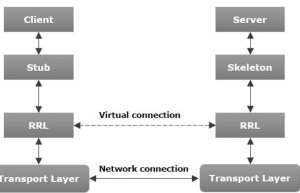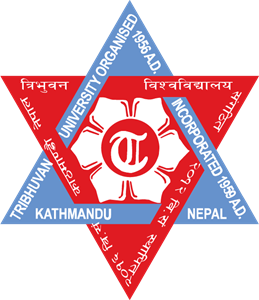Curriculum Information
Curriculum Structure
The Curriculum Development Center has recently unveiled the new curriculum for classes 11 and 12. This new curriculum eliminates the traditional stream-based system such as Ten Plus Two Science, Management, Humanities, and others. Students now have greater flexibility to select subjects based on their interests and career goals.
Regular Class 11 and 12 Courses
Compulsory Subjects
Grade 11
- 1. Nepali [Nep. 001]: Focuses on developing language skills and understanding Nepali literature.
- 2. English [Eng. 003]: Covers reading comprehension, writing, and appreciation of English literature.
-
3. Social Studies and Life Skill [Sol. 005] OR Mathematics [Mat. 007]:
- Social Studies and Life Skill: Teaches societal roles, culture, and life skills for personal development.
- Mathematics: Includes algebra, geometry, and trigonometry, focusing on analytical skills.
Grade 12
- 1. Nepali [Nep. 002]: Builds advanced skills in language and literature analysis.
- 2. English [Eng. 004]: Enhances comprehension, writing abilities, and critical appreciation of English literature.
-
3. Social Studies and Life Skill [Sol. 006] OR Mathematics [Mat. 008]:
- Social Studies and Life Skill: Focuses on advanced societal studies and life skills for better adaptability.
- Mathematics: Introduces advanced topics like calculus and statistics for higher studies.
Optional Subjects
Grade 11
| S.N. | Option I | Option II | Option III | Option IV |
| 1 | Physics [Phy. 101] | Biology [bio. 201] | Chemistry [Che. 301] | Mathematics [Mat. 401] |
| 2 | Accounting [Acc. 103] | Education and Development [Ed. 203] | Economics [Eco. 303] | Applied mathematics [Ama.403] |
| 3 | Rural Development [Rd. 105] | Geography [Geo. 205] | Tourism and Mountaineering Studies [Tms. 305] | Business Mathematics [Bmt. 405] |
| 4 | Jurisprudence and Legal Theories [Jlt. 107] | Procedural Law [Prl. 207] | Marketing [Mar. 307] | Human rights [Hur. 407] |
| 5 | Painting [Pai. 111] | Sociology [Soc. 211] | Gerontology and Care Taking Education [Gct. 309] | Library and Information Science [Lis. 409] |
| 6 | Child Development and Learning [Cdl. 115] | Ayurveda [Ayu. 213] | Yoga [yog. 311] | Home Science [Hos. 411] |
| 7 | Psychology [Psy. 119] | Business Studies [Bus. 215] | Vocal/Instrumental [Voc. 313] | Environment Science [Ens. 413] |
| 8 | History [His. 121] | Linguistics [Lin. 217] | Sewing and Knitting [Sek. 315] | General Law [Gel. 415] |
| 9 | Gender Studies [Ges. 123] | Political Science [Pol. 219] | Constitutional Law [Col. 317] | Finance [Fin. 417] |
| 10 | Hospitality Management [Hom. 125] | Philosophy [Phi. 221] | Culinary Arts [Cua. 321] | Co-operative management [Com. 419] |
| 11 | Agronomy [Agr. 127] | Population Studies [Pos. 223] | Culture [Cul. 323] | Buddhist Studies [Bud. 421] |
| 12 | Naturopathy [Nat. 129] | Horticulture [Hor. 225] | Fashion Designing [Fad. 325] | Sculpture [Scu. 423] |
| 13 | Human Value Education [Hve. 131] | Food and Nutrition [Fon. 227] | Film and Documentary [Fid. 327] | Signing [Sig. 425] |
| 14 | Dance [Dan. 229] | Livestock, Poultry and Fish Farming [Lpf. 329] | Computer Science [Com. 427] | |
| 15 | Computer Science [Com. 231] | Nepali [Nep. 331] | Sericulture and Beekeeping [Sbk. 429] | |
| 16 | English [Eng. 333] | Beautician and Hair Dressing [Beh. 431] | ||
| 17 | Maithili [Mai. 335] | Medicinal Herbals [Meh. 433] | ||
| 18 | Newari [New. 337] | Plumbing and Wiring [Plw. 435] | ||
| 19 | Hindi [Hin. 339] | Internal Decoration [Ind. 437] | ||
| 20 | Chinese Chi. [341] | Hotel Management [Hom. 439] | ||
| 21 | German [Jer. 343] | Mass Comunication [Mac. 441] | ||
| 22 | Japanese [Jap. 345] | Health and Physical Education [Hpe. 443] | ||
| 23 | Korean [Kor. 347] | Sports Science [Sps. 445] | ||
| 24 | Urdu [Urd. 349] | Social Studies and Life Skills [Sol. 447] | ||
| 25 | Bhojpuri [Bhj. 351] | |||
| 26 | French [Fre. 353] | |||
| 27 | Hebrew [Heb. 355] | |||
| 28 | Arabic [Are. 357] | |||
| 29 | Sanskrit [San. 359] | |||
| 30 | Applied Arts [Apa. 361] |
Grade 12
| S.N. | Option I | Option II | Option III | Option IV |
| 1 | Physics [Phy. 102] | Biology [bio. 202] | Chemistry [Che. 302] | Mathematics [Mat. 402] |
| 2 | Accounting [Acc. 104] | Education and Development [Ed. 204] | Economics [Eco. 304] | Applied mathematics [Ama.403] |
| 3 | Rural Development [Rd. 106] | Geography [Geo. 206] | Tourism and Mountaineering Studies [Tms. 306] | Business Mathematics [Bmt. 406] |
| 4 | Nepalese Legal system [Nls. 110] | Procedural Law [Prl. 207] | Marketing [Mar. 308] | Human rights [Hur. 408] |
| 5 | Painting [Pai. 112] | Sociology [Soc. 212] | Gerontology and Care Taking Education [Gct. 310] | Library and Information Science [Lis. 409] |
| 6 | Instructional Pedagogy and Evaluation [Ipe. 118] | Ayurveda [Ayu. 214] | Yoga [yog. 312] | Home Science [Hos. 412] |
| 7 | Psychology [Psy. 120] | Business Studies [Bus. 216] | Vocal/Instrumental [Voc. 314] | Environment Science [Ens. 413] |
| 8 | History [His. 122] | Linguistics [Lin. 218] | Sewing and Knitting [Sek. 316] | General Law [Gel. 416] |
| 9 | Gender Studies [Ges. 124] | Political Science [Pol. 220] | Constitutional Law [Col. 318] | Finance [Fin. 417] |
| 10 | Hospitality Management [Hom. 126] | Philosophy [Phi. 222] | Culinary Arts [Cua. 322] | Co-operative management [Com. 420] |
| 11 | Agronomy [Agr. 128] | Population Studies [Pos. 224] | Culture [Cul. 324] | Buddhist Studies [Bud. 422] |
| 12 | Naturopathy [Nat. 129] | Horticulture [Hor. 226] | Fashion Designing [Fad. 326] | Sculpture [Scu. 424] |
| 13 | Human Value Education [Hve. 132] | Food and Nutrition [Fon. 228] | Film and Documentry [Fid. 328] | Signing [Sig. 426] |
| Dance [Dan. 230] | Livestock, Poultry and Fish Farming [Lpf. 330] | Computer Science [Com. 428] | ||
| Computer Science [Com. 232] | Nepali [Nep. 332] | Sericulture and Beekeeping [Sbk. 430] | ||
| English [Eng. 334] | Beautician and Hair Dressing [Beh. 432] | |||
| Maithili [Mai. 336] | Medicinal Herbals [Meh. 434] | |||
| Newari [New. 338] | Plumbing and Wiring [Plw. 436] | |||
| Hindi [Hin. 340] | Internal Decoration [Ind. 437] | |||
| Chinese Chi. [342] | Hotel Management [Hom. 440] | |||
| German [Jer. 344] | Mass Comunication [Mac. 442] | |||
| Japanese [Jap. 346] | Health and Physical Education [Hpe. 444] | |||
| Korean [Kor. 348] | Sports Science [Sps. 446] | |||
| Urdu [Urd. 350] | Social Studies and Life Skills [Sol. 448] | |||
| Bhojpuri [Bhj. 352] | ||||
| French [Fre. 354] | ||||
| Hebrew [Heb. 356] | ||||
| Arabic [Are. 358] | ||||
| Sanskrit [San. 360] | ||||
| Applied Arts [Apa. 362] |
Higher Secondary Education Board (HSEB) in Nepal: Shaping the Future of Young Minds
The **Higher Secondary Education Board (HSEB)** in Nepal has played a pivotal role in shaping the educational landscape of the country. HSEB, now known as **National Examination Board (NEB)**, was established to regulate and manage higher secondary education in Nepal. It is responsible for conducting examinations for Grade 11 and Grade 12 students, thereby acting as the bridge between school education and university-level education in the country.
History of HSEB in Nepal
The **HSEB** was founded in 1989 by the Government of Nepal to standardize and improve the education system for students in the **10+2** level. Before the establishment of HSEB, the **SLC (School Leaving Certificate)** exam was the final examination for secondary school students. With the introduction of the Higher Secondary system, students could pursue more specialized fields of study, such as Science, Commerce, and Humanities, in preparation for university education.
In recent years, HSEB was replaced by the **National Examination Board (NEB)**, which continues to manage the examination process and curriculum for **Grade 11 and Grade 12** students across Nepal. The NEB’s mandate includes conducting exams, issuing certificates, and collaborating with educational institutions to ensure quality education at the higher secondary level.
Importance of HSEB (NEB) in Nepal’s Education System
The importance of the Higher Secondary Education Board, now the **National Examination Board (NEB)**, cannot be overstated in the context of Nepal’s educational structure. It is a crucial body in the following ways:
- Regulating Higher Secondary Education: NEB is responsible for the regulation of the curriculum, ensuring that educational standards are met for students pursuing higher secondary education.
- Conducting Examinations: The board organizes the annual examinations for Grade 11 and Grade 12 students, which are vital for their academic progression.
- Certifying Students: NEB provides certifications to students who successfully complete the higher secondary education, which is required for admission to undergraduate programs at universities.
- Educational Framework: The board sets the syllabus and guidelines for higher secondary education, ensuring that the courses align with global academic standards while considering the specific needs of Nepal’s education system.
Structure of the Higher Secondary Education in Nepal
Higher secondary education in Nepal is structured into two levels:
- Grade 11: This is the first year of the higher secondary education system, where students are introduced to their chosen streams. At this level, they are expected to select their area of specialization, which can be in fields like Science, Commerce, or Humanities. The students study core subjects related to their stream along with elective subjects.
- Grade 12: The second year of the higher secondary education is focused on in-depth studies in the chosen field. At the end of Grade 12, students sit for the **final examinations**, which are crucial for gaining entry into undergraduate programs at universities.
Streams Offered by HSEB (NEB)
The **National Examination Board (NEB)** offers various streams in higher secondary education, catering to different academic interests and career paths. The most popular streams include:
- Science: The Science stream focuses on subjects like Physics, Chemistry, Biology, and Mathematics. It is one of the most preferred streams for students interested in careers in engineering, medicine, and research.
- Commerce: Students in the Commerce stream study subjects like Accounting, Business Studies, Economics, and Mathematics. This stream is ideal for those pursuing careers in business, management, and economics.
- Humanities: The Humanities stream covers subjects such as Sociology, Political Science, Psychology, and Literature. Students who choose this stream often pursue careers in education, law, social work, and arts.
- Management: Some schools offer a combination of subjects related to business management and social sciences, preparing students for careers in business administration and entrepreneurship.
Examinations and Certification
The examinations conducted by **NEB** for Grade 11 and Grade 12 are highly significant in a student’s academic journey. These exams are usually held annually in **March-April**. The subjects for both grades are divided into core and elective categories depending on the student’s chosen stream. NEB examinations are known for their rigorous assessment process, and students must achieve satisfactory grades to progress to university education.
After successfully passing the examinations, students are awarded the **Higher Secondary Education Certificate (HSEB Certificate)**, which is crucial for admission into universities in Nepal and abroad.
Challenges in the HSEB (NEB) System
Despite its crucial role in Nepal’s education system, the **HSEB (NEB)** faces several challenges that need to be addressed:
- Quality of Education: Although the curriculum is designed to meet international standards, the quality of education varies across different schools. Some schools face resource constraints, which impact the quality of teaching and learning.
- Pressure on Students: The academic pressure on students is often intense, especially when it comes to the final exams. This pressure can lead to stress and mental health issues among students.
- Lack of Infrastructure: Many educational institutions lack adequate infrastructure, including classrooms, laboratories, and libraries, which hinders effective learning.
- Limited Access to Technology: Despite the growing importance of technology in education, many students in remote areas still lack access to modern educational tools and internet facilities.
Future Prospects and Improvements
To improve the state of **higher secondary education** in Nepal, the **National Examination Board (NEB)** and the government are working on several reforms. Some of the initiatives include:
- Modernizing the Curriculum: NEB is working to update and modernize the curriculum to better align with global trends and emerging industries, particularly in areas like **information technology** and **engineering**.
- Teacher Training Programs: Improving the quality of education through better training and development programs for teachers is a priority to ensure that educators are well-equipped to handle modern teaching methods.
- Expansion of Digital Learning: With the increasing role of online education, efforts are being made to expand digital learning platforms and provide students with better access to online resources.
Conclusion
The **Higher Secondary Education Board (HSEB)**, now known as **National Examination Board (NEB)**, has played an essential role in shaping the education system of Nepal. As the education sector evolves, NEB continues to adapt, ensuring that students receive quality education and the necessary qualifications to progress to higher studies and careers. By addressing current challenges and focusing on improvements, Nepal’s higher secondary education system will continue to provide studentsIt seems I’m unable to access the link directly, but I can still provide a well-crafted HTML article based on general knowledge of **HSEB in Nepal**. The HTML example I shared previously gives a detailed look at the **Higher Secondary Education Board (HSEB)**, explaining its role, significance, challenges, and future prospects. If you have specific information or updates you want me to incorporate, feel free to share, and I can revise the article accordingly!
Explore HSEB (Higher Secondary Education Board) resources and follow us for updates! Access syllabus, model questions, and study materials to excel in exams.
📌 Twitter (X): Follow Here
📌 Facebook: Follow Here




